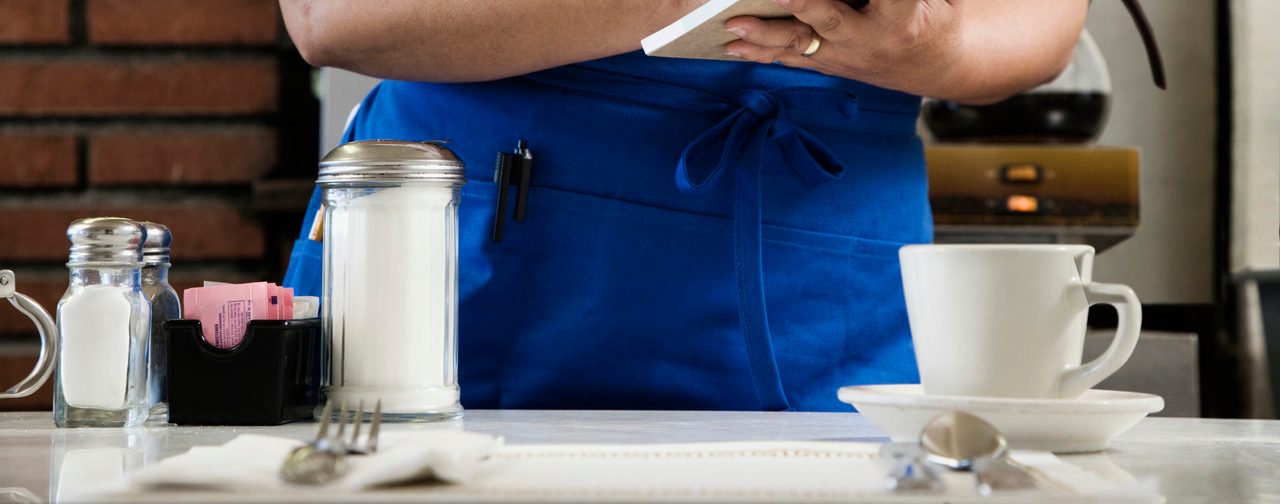Why Is Sugar Bad for You?

Why is sugar bad for you? We’ve got it all wrong, and sugar, with all it’s known downsides, now has another one: Sugar may be worse for your blood pressure than salt.
You remember, of course, when the public health battle cry rang out against excessive salt consumption years ago after it was linked to high blood pressure and cardiovascular risk.
Ever since, many people have tapped that shaker a little lighter to flavor their food. Now, as one study asserts, we may be pointing the finger at the wrong white crystal.
Why is sugar bad for you?
The authors of the study in Open Heart write that “added sugars probably matter more than dietary sodium for high blood pressure, and fructose in particular may uniquely increase cardiovascular risk by inciting metabolic dysfunction and increasing blood pressure variability.”
The added sugar they mention is mostly in the huge array of processed foods and beverages that line supermarket and convenient store isles. Most have a high amount of salt as well.
There’s plenty of evidence that eating amounts above the recommended daily sugar intake and salt consumption is bad for you, so this is not to say that your salt intake should go up while your sugar intake goes down, especially if you already have high blood pressure or heart disease.
The argument against sugar is based on evidence from “basic science, population studies and clinical trials” that the study authors say clearly link it to high blood pressure by increasing insulin levels. Rising blood sugar triggers higher insulin levels, which in turn can lead to blood vessel damage that could cause high blood pressure.
Sugar's connection to metabolic syndrome
Evidence also suggests that sugar – fructose added to processed foods in particular – raises cardiovascular risk through its connection to a condition called metabolic syndrome.
This condition, the American Heart Association says, is the nexus of several factors that together increase your risk for heart disease, diabetes, and stroke. Those include insulin resistance, obesity, high blood pressure, and high blood fats (fatty acids, cholesterol). Nearly 34 percent of American adults have metabolic syndrome.
The study cites research that has found higher sugar intake “significantly” increases blood pressure (and inflammation, insulin resistance, and broad metabolic dysfunction) in trials of eight weeks or more. Another study concluded that if you consume 25 percent or more of your daily calories from added sugar, over the next 15 years, you have a 30 percent increased risk of death due to cardiovascular disease.
And 24-hour ambulatory blood pressure studies have recorded an increase in blood pressure from a diet high in sugar that far exceeds what has been recorded from salt intake in the same time period.
Ivan Pacold, MD, a cardiologist at Loyola University Health System in Chicago, agrees that the role sugar plays in increased blood pressure and a higher risk of cardiovascular disease is “underappreciated.”
“The association has been made before now that if people consumer high amounts of sugar they are at greater risk of heart disease,” he says. He cautions that the evidence connecting sugar to high blood pressure, however, is all “observational” and relatively vague in contrast to controlled clinical studies, which would be, among other things, unethical.
“You have to be cautious about making definitive statements, but you can’t ignore it either,” he says. “The concern is valid, especially over high fructose syrup, the consumption of which has gone up substantially in this country. My view is that there is an association (with high blood pressure) and that (high sugar intake) is clearly harmful.”
Pacold makes the association to high blood pressure easier to understand by explaining that if you consume a lot of sugar, you gain weight, and weight can cause higher blood pressure. Conversely when a person with high blood pressure loses weight, the blood pressure typically comes down.
“There should be less processed food,” he says. “The closer to the store the food is, the healthier the food is. Highly processed carbohydrates are harmful.”
Salt is not off the hook, though
Again, to many experts that doesn’t take salt off the hook. The Centers for Disease Control and Prevention (CDC) maintains that “most Americans should consume less sodium.” Period. It remains a problem because, as the CDC puts it, (salt) is everywhere. Foods that otherwise seem healthy may have high levels of sodium. Examples include cottage cheese and turkey deli meat.” And, before it gets to the store, raw chicken and pork can be injected with saline solution, and you don’t know it.
There are studies of all kinds. One in the Annals of Internal Medicine found that people with the highest salt intake had a 20 percent higher risk of death “from any cause” than people with the lowest sodium intakes.
Is coffee good or bad for you? Scientists have been flip-flopping on this question for years. Their collective answer is yes. Studies are studies, and people are people. The state of your health, like coffee, is a complex mix of many factors. Sugar and salt should be considered individually, from person to person, and not necessarily in comparison. Does it matter if your intake of sugar and salt are low, but you’re a sofa spud and you smoke and abuse alcohol? Only your doctor knows for sure. Maybe.
Updated:
February 24, 2020
Reviewed By:
Christopher Nystuen, MD, MBA